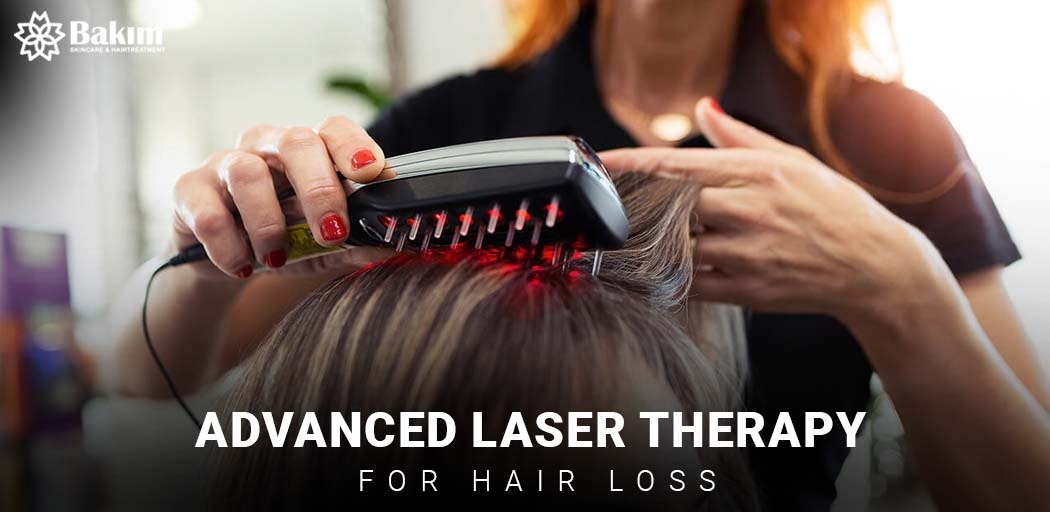Hair loss can be a distressing experience for many individuals, impacting self-esteem and confidence. Fortunately, advancements in technology have led to the development of innovative treatments such as advanced laser therapy. But what exactly is advanced laser therapy, and how does it combat hair loss?
Causes of Hair Loss
Before delving into laser therapy, it’s crucial to understand the underlying causes of hair loss. Genetic predisposition, hormonal imbalances, and certain medical conditions can contribute to thinning hair and baldness.
Traditional Treatments for Hair Loss
Historically, treatments for hair loss have included medications like minoxidil and finasteride, as well as surgical procedures such as hair transplants. While effective for some, these methods may not provide satisfactory results for everyone.
Understanding Advanced Laser Therapy
Advanced laser therapy utilizes low-level laser technology to stimulate hair follicles, promoting growth and thickness. Unlike traditional treatments, laser therapy is non-invasive and painless, making it an attractive option for many.
How Advanced Laser Therapy Works for Hair Loss
The lasers used in therapy penetrate the scalp, increasing blood flow and delivering nutrients to dormant follicles. This stimulation encourages the growth of new hair and strengthens existing strands.
Effectiveness of Advanced Laser Therapy
Numerous clinical studies have demonstrated the effectiveness of laser therapy in combating hair loss. Patients often report significant improvements in hair density and quality after undergoing treatment.
Safety of Advanced Laser Therapy
One of the major advantages of laser therapy is its safety profile. Unlike medications, there are minimal side effects associated with laser treatment, making it suitable for long-term use.
Cost and Accessibility
While the initial cost of laser therapy may seem daunting, it is often more affordable in the long run compared to ongoing medication or surgical procedures. Additionally, many clinics offer financing options to make treatment more accessible.
Choosing the Right Laser Therapy Option
Consulting with a healthcare professional is essential when considering laser therapy. They can assess your individual needs and recommend the most suitable treatment plan, whether it’s in-office sessions or at-home devices.
Combining Laser Therapy with Other Treatments
For optimal results, laser therapy can be combined with other hair loss treatments. This multi-faceted approach addresses various factors contributing to hair loss and maximizes the chances of success.
Lifestyle Changes to Support Hair Growth
In addition to laser therapy, making lifestyle changes can further support hair growth. A balanced diet, stress management techniques, and proper scalp care are essential components of a comprehensive hair care routine.
Realistic Expectations and Patience
It’s important to have realistic expectations when undergoing laser therapy. While results may not be immediate, consistent treatment over time can yield significant improvements in hair thickness and coverage.
Maintaining Results After Laser Therapy
Following the completion of laser therapy, it’s crucial to maintain results through regular follow-up treatments and continued hair care practices. This proactive approach can prolong the benefits of therapy and prevent further hair loss.
Potential Future Developments in Laser Therapy
As technology continues to evolve, so too will laser therapy for hair loss. Ongoing research aims to enhance treatment efficacy and minimize side effects, promising even more promising results in the future.
Conclusion
Advanced laser therapy offers a safe, effective, and non-invasive solution for individuals struggling with hair loss. By understanding how laser therapy works and its potential benefits, many are finding renewed confidence and satisfaction with their hair.
FAQ’s
Q1: Is laser therapy painful?
- Laser therapy is generally painless, with most patients experiencing only a mild warming sensation during treatment.
Q2: How long does it take to see results from laser therapy?
- While individual results may vary, many patients begin to notice improvements in hair density and thickness after several months of consistent treatment.
Q3: Can laser therapy be used in conjunction with other hair loss treatments?
- Yes, laser therapy can be combined with medications, supplements, and other treatments to enhance results.
Q4: Are there any side effects associated with laser therapy?
- Side effects are rare with laser therapy and are usually mild and temporary, such as scalp irritation or redness.
Q5: Is laser therapy suitable for everyone?
- While laser therapy is safe for most individuals, it may not be suitable for those with certain medical conditions or specific types of hair loss. Consultation with a healthcare professional is recommended before starting treatment.



